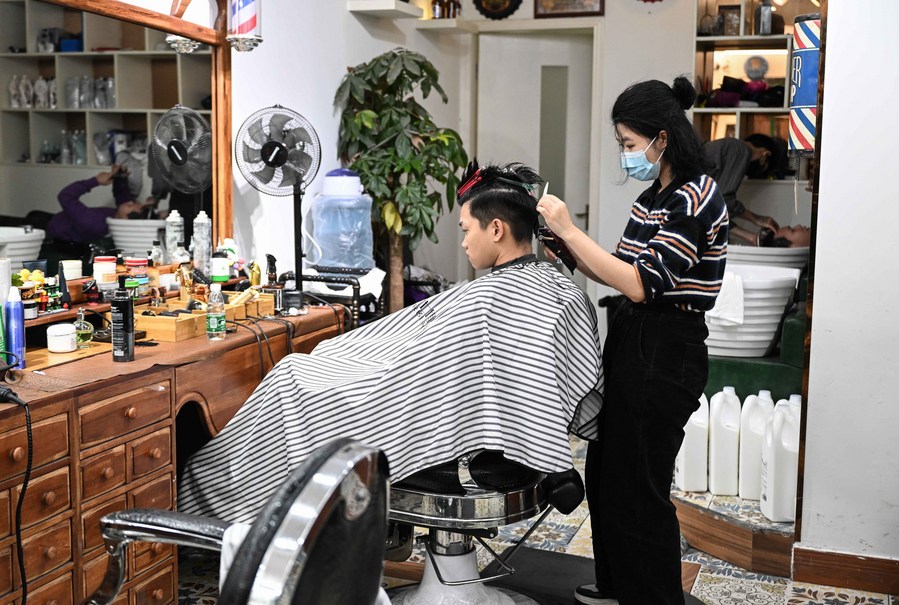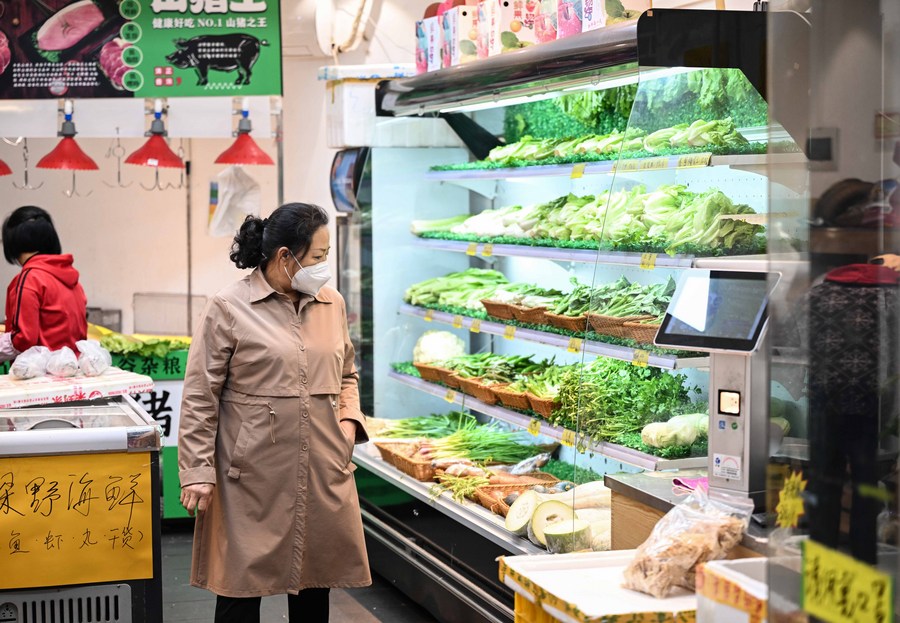|
* China is actively optimizing and refining its COVID-19 response as the pathogenicity of the Omicron virus weakens, the vaccination rate rises and the country accumulates experience in containing the virus. * Closed-off management for the sake of epidemic control should be imposed and lifted as quickly as possible to reduce the inconvenience caused by the COVID-19 epidemic to the people. * From Wednesday, Beijing residents who do not engage in social activities are no longer required to undergo community nucleic acid screenings if they do not need to leave their homes. by Xinhua writers Ma Xiaocheng, Ye Ting, Xu Hongyi, Wang Pan BEIJING, Dec. 1 (Xinhua) -- As the pathogenicity of the Omicron virus weakens, the vaccination rate rises and China accumulates experience in containing the virus, the country is actively optimizing and refining its COVID-19 response. The Chinese mainland on Wednesday reported 4,080 locally transmitted confirmed COVID-19 cases, the National Health Commission (NHC) said Thursday. A total of 31,720 local asymptomatic carriers were newly identified. The districts of Haizhu, Tianhe, Panyu and Liwan in Guangzhou, capital of south China's Guangdong Province, lifted all temporary control measures on Wednesday. All areas except for designated high-risk ones are now classified as low-risk areas or subject to regular control measures. 
A hairdresser cuts a customer's hair at a hair salon in Liwan District of Guangzhou, capital of south China's Guangdong Province, Dec. 1, 2022. (Xinhua/Deng Hua) Starting from Thursday, differentiated control measures have been adopted for the orderly resumption of normal life and production in four districts, a high-tech development zone and an industrial park in Shijiazhuang, capital of north China's Hebei Province. Beijing has optimized its COVID-19 control measures to minimize their impact on people's livelihoods. It has ordered closed management measures to be lifted in a timely manner for eligible residential complexes, and has allowed virus-hit supermarkets to reopen following a one-day closure. From Wednesday, Beijing residents who do not engage in social activities are no longer required to undergo community nucleic acid screenings if they do not need to leave their homes, according to local authorities. This includes groups such as homebound seniors, children and people working or studying from home, Xu Hejian, spokesperson for the Beijing municipal government, told a press conference. Vice Premier Sun Chunlan on Wednesday underlined the importance of constantly optimizing the country's COVID-19 response. She urged efforts to further optimize the COVID-19 response, improve diagnosis, testing, treatment and quarantine measures, strengthen immunization of the whole population, particularly the elderly, and step up the preparation of medications and other medical resources. 
Residents select vegetables in Liwan District of Guangzhou, capital of south China's Guangdong Province, Dec. 1, 2022. (Xinhua/Deng Hua) Since Wednesday afternoon, the number of nucleic acid testing sites in Guangzhou began to decline, and some of them have been transferred inside communities to provide free testing services for residents with travel and medical needs. "All districts should only carry out nucleic acid screening for key personnel and not expand the scope of the testing," Zhang Yi, deputy director of the Guangzhou municipal health commission, said at a press conference. Mi Feng, spokesperson for the NHC, said Tuesday that closed-off management for the sake of epidemic control should be imposed and lifted as quickly as possible to reduce the inconvenience caused by the COVID-19 epidemic to the people. Excessive control measures should be continuously rectified and the reasonable requests of the people should be responded to and addressed in a timely manner, he added. Beijing authorities told hospitals to avoid closing important departments, such as emergency and maternity departments, even if they have been hit by COVID-19 cases. Departments including emergency, dialysis units, operating rooms, intensive care units, delivery rooms, maternity and neonatal units must not be closed unless absolutely necessary, said Wang Xiao'e, spokesperson for the Beijing municipal health commission. 
Customers enjoy dessert at a sweet shop in Liwan District of Guangzhou, capital of south China's Guangdong Province, Dec. 1, 2022. (Xinhua/Deng Hua) Tianhe, Haizhu and Liwan districts in Guangzhou have announced the reopening of restaurants, cinemas and other closed and semi-closed venues since Wednesday. Many catering enterprises also resumed dine-in services while some fitness and swimming centers have also reopened. (Video reporters: Huang Guobao, Xu Hongyi; video editors: Lin Lin, Zhao Yuchao, Yin Le)
|